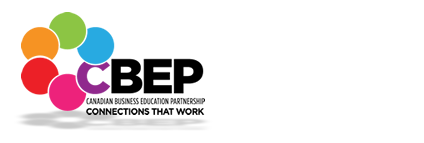The question is: can schools, students and parents afford to buy into it?
At a news conference in New York on Thursday, Apple announced it's partnered with three major textbook companies to launch a new section in its iBooks store dedicated to educational material. Most textbooks will be priced at US$14.99 or less, Apple said, which is far cheaper than what schools and students are used to paying —especially for the thick, heavy tomes used for teaching in high school, colleges and universities.
Apple also claims the "dynamic, engaging and truly interactive" digital textbooks will open up new possibilities for learning.
"We're seeing that as students are starting to be introduced to iPads (for) learning some really remarkable things are happening," said Philip Schiller, Apple's senior vice president of worldwide marketing, who noted that 1.5 million iPads are already being used in education settings.
"We're on the cusp of something really great."
While U.S. publishers Houghton Mifflin Harcourt, McGraw-Hill and Pearson have partnered with Apple, Canadian textbook companies have yet to do so.
Of course, buying a tall stack of iPads — which start at $519 — to outfit a class requires a huge investment and some observers hope schools tread carefully before blowing their budgets. And parents should not be expected to help pay for any part of an iPad experiment, said Annie Kidder, executive director of the Toronto-based group People for Education.
"We cannot assume that all students coming to school can afford things like iPads or any sort of technology — like smartphones or anything like that," Kidder said.
"So it's really important when we're thinking about introducing new technology into the classroom that we think first, before anything else, about how we're going to ensure that all kids have equitable access to it."
There are already examples of classrooms across Canada where iPads are used by students and those involved are enthusiastic about the potential. Teacher Derek Keenan won a grant to acquire 37 iPads to use at his high school in Airdrie, Alta., and is a believer in using technology for teaching.
He was excited to see what Apple unveiled Thursday, and was particularly interested in a free tool called iBooks Author, which allows anyone to create their own iPad-compatible course material.
"I've played around with the tool already and it really makes it simple for a regular teacher to create great content based on what they already have (like) diagrams or multimedia that already exists on their computer," Keenan said.
He does see the cost of iPads as an issue although he thinks it's becoming less of a problem, since so many families already have one at home and schools likely wouldn't need to provide one for each student.
"We're getting close to 25 per cent in my classes of students (having their own) devices," he said.
"What I've been finding is more and more students have been coming to class with iPads already."
Asking parents to buy textbooks for their personal iPad "is going to be a little bit of a tough sell," he said, although he wouldn't be surprised if schools start deciding that a large order of iPads is a worthwhile investment.
"When you amortize it over the lifetime of a student in a school it saves a lot," he said.
"If schools no longer have to buy textbook materials because they're creating their own and they're just spending that money on the hardware, the trade-off cost is going to be minimal. Particularly with some students already having their own devices."
The popularity of Wikipedia and open-source material online suggests it may not be long before textbooks can be freely downloaded too, said Lorna Costantini, a former trustee and teacher who's currently working with the Council of Ontario Directors of Education.
"People are working together on the Internet, making publications together, and I think that's a model that's going to come."
But before rushing into anything, parents and educators need to remember that technology won't magically make kids smarter, said Kidder.
"It's not the technology that necessarily makes the difference, it's the teaching and it's the content," she said.
"The technology is not a magic bullet that's suddenly going to make everything work wonderfully better."
